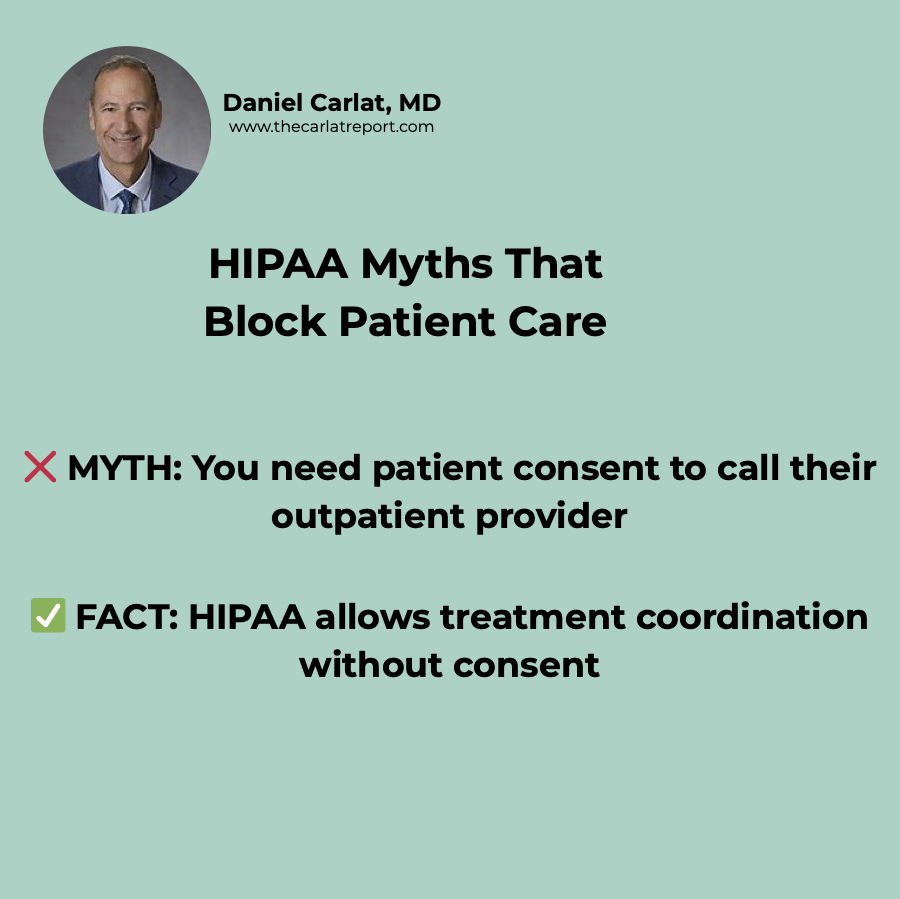You get a call from the ER about a patient in restraints.
Bipolar disorder. Disrobing. Yelling at staff. They need his medication history.
But his outpatient clinic won't talk to you.
"HIPAA," they say. "He needs to sign a release first.
"Here's the problem: They're wrong.
And patients suffer because of it.
HIPAA doesn't block treatment communication. It actually facilitates it.
The "P" in HIPAA doesn't stand for privacy—it stands for portability. The law was designed to help medical information move between providers when patients need care.
What HIPAA actually allows without patient consent:
↳ Sharing information for treatment purposes
↳ Coordinating care with other providers
↳ Discharge planning with social services
↳ Talking to family during emergencies when patients can't consent.
The truth about my patient?
We committed him. Spent weeks on antipsychotics. Finally got him stable enough to sign a release.
Turns out he'd done beautifully on lithium and olanzapine for years.
We could have had that information on day one. Legally. Ethically. Without any consent forms.
HIPAA confusion isn't just an administrative headache.
It's a patient safety crisis hiding in plain sight.
- What HIPAA myths have you encountered that interfered with patient care?
- Share this if you've seen communication blocked unnecessarily
- Follow for more practical insights on psychiatric practice
Join the conversation on LinkedIn with Dr. Carlat
Related Articles
- New Weight Loss Drugs in Psychiatry Authors: Chris Aiken, MD, and David Liebers, MD
- Proposed Treatment Algorithm for Postpartum Psychosis Author: Alex Evans, PharmD, MBA
- Complexities of Elder Abuse Author: Elizabeth (EJ) Santos, MD, MPH


_-The-Breakthrough-Antipsychotic-That-Could-Change-Everything.jpg?1729528747)



